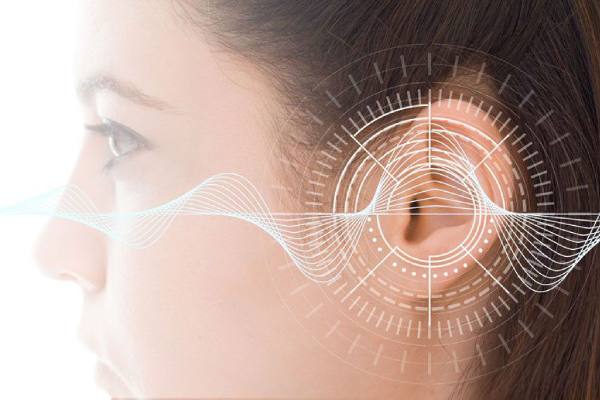Think you may have difficulties hearing? SH Audiology is here to help. Start your journey toward better hearing by taking our quick and easy online hearing screening.
Online Hearing Screening vs. In-Office Hearing Test
An online hearing screening measures how well you can hear different sounds and is used to determine if you may have a hearing impairment in as little as five minutes.
After reviewing your demographic information, the online hearing screening asks you questions about how you perceive your hearing in different environments and conditions.
Next is the hearing check portion of the exam. Headphones are required and we recommend completing the screening in a quiet location. A variety of tones are played through the headphones while you answer queries about each sound. The screening is then repeated in your other ear.
The results of your online hearing screening are separated out by ear and indicate where your hearing ability falls on a spectrum from good to poor. This information can be used by your hearing healthcare provider to order a comprehensive hearing evaluation.
A comprehensive audiology evaluation is completed in the office and consists of a series of individual diagnostic tests that measure different aspects of your hearing. Following a physical examination and a review of your medical history, you will be given any or all of the following tests:
- Pure tone air conduction testing
- Pure tone bone conduction testing
- Speech testing
- Tympanometry
- Acoustic reflex testing
- Otoacoustic emissions
Once your type, degree and hearing configuration has been determined, a treatment plan can be customized to fit your hearing lifestyle needs.


What do I do with my online hearing screening results?
An online hearing screening can indicate if you may have hearing problems through a series of self-reported questions. The results should be used to prompt you to visit an audiology office, where a complete hearing evaluation is performed. These hearing evaluations are used to determine your type of hearing and measure your exact degree of hearing impairment.
Your results are then used by your hearing healthcare provider to create an individualized treatment plan.
Benefits of Hearing Aids
Hearing aids are the most widely prescribed treatment plan for hearing impairment, and for good reason. Compared to individuals who choose to live with untreated hearing impairment, those who treat their impairment with hearing aids report better:
- Overall health
- Professional success
- Social success
- Emotional well-being

Online Hearing Screening FAQ

Do I need a hearing screening?
Individuals of all ages can benefit from a hearing screening, even if they are not showing signs of an impairment. For those under the age of 50, experts recommend visiting your hearing care provider for a hearing exam every 10 years. If you are over the age of 50, you should have your hearing screened every three years.
The sooner you identify a hearing issue, the quicker you can seek treatment and the better the outcome. Since hearing impairment often develops slowly, the early signs are easy to miss. Having a screening schedule in place provides necessary safeguards.
Am I going deaf?
Being able to identify the early signs of hearing impairment ensures you seek treatment in a timely manner. Below are the top 10 signs you may have a hearing issue.
- People seem to mumble when they speak.
- You often ask people to repeat themselves.
- You experience tinnitus (ringing in your ears).
- Others complain that you are watching TV or listening to music too loudly.
- You are unable to hear everyday household sounds (e.g., ringing doorbell).
- You have trouble following conversations in a large group setting, especially when background noise is present.
- You have difficulty hearing when you are not facing the speaker.
- You have trouble understanding every word in a conversation.
- Telephone conversations are difficult for you to follow.
- Others accuse you of speaking too loudly.


Is hearing impairment permanent?
Hearing impairment is caused by damage to the inner, middle or outer ear.
Conductive hearing impairment occurs when there are problems in the outer ear and/or middle ear. This type of hearing impairment can often be corrected by medical treatment or surgery.
Sensorineural hearing impairment, often referred to as nerve deadness, occurs when there is a problem with the inner ear. This is the most common type of hearing loss and is typically permanent. Hearing aids are the preferred treatment method for this type of hearing loss.
Contact Us Today!
